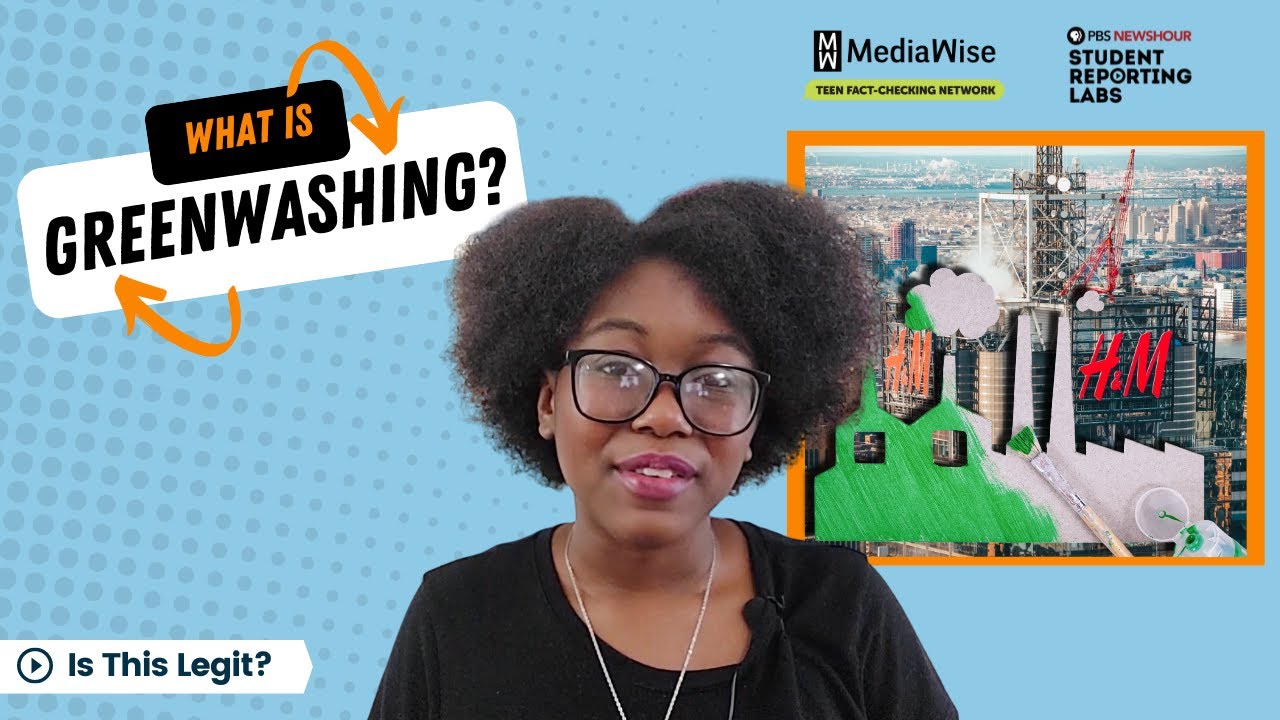Greenwashing: A Fiji Water Story
Summary
TLDRThis video explores the concept of greenwashing, where companies falsely market products as eco-friendly to appeal to environmentally conscious consumers. While promoting sustainability is crucial, deceptive tactics can undermine the movement. The video highlights Fiji Water as a key example, revealing how its marketing campaigns construct a green image despite the environmental harm caused by its plastic bottles and long-distance shipping. Viewers are encouraged to critically evaluate products labeled as 'green' and do research to support truly ethical and sustainable businesses.
Takeaways
- 🌿 Green marketing is widespread, seen across grocery stores on products like eggs and shampoos, often with eco-friendly labels.
- 😌 While eco-friendly consumerism is positive, it can hide deceptive practices known as greenwashing.
- 🌍 Greenwashing misleads consumers by marketing products as environmentally friendly when they are not truly sustainable.
- 🤔 Many 'green' products, like 'all-natural' or 'eco-friendly' labels, might just be using these terms to attract consumers without substance.
- 🥚 Larger companies using false eco-friendly claims often out-compete smaller, more ethical brands that follow true sustainable practices.
- 🚰 Fiji water's marketing is highlighted as a clear example of greenwashing, portraying itself as natural and eco-friendly when it isn't.
- 📦 Despite advertising its water as untouched and natural, Fiji water's production relies heavily on plastic and global shipping, which harm the environment.
- 💧 It's ironic that many people in Fiji don't have access to clean drinking water, while the brand markets its product as pristine and beneficial.
- 🌳 Greenwashing often plays on visuals, using nature imagery like trees and leaves to give the false impression of an eco-friendly product.
- 📢 Consumers are encouraged to be aware of greenwashing tactics, research products thoroughly, and use their collective power to demand more truthful and sustainable practices from companies.
Q & A
What is greenwashing?
-Greenwashing refers to the practice of marketing products as environmentally friendly or 'green' when, in reality, they may not be sustainable or eco-friendly. It misleads consumers into thinking they're making ethical choices when purchasing such products.
Why is greenwashing harmful?
-Greenwashing is harmful because it deceives consumers who want to make environmentally conscious purchases. It also undermines genuinely sustainable products by giving false credibility to less ethical alternatives, making it harder for ethical companies to compete.
How does Fiji water engage in greenwashing according to the script?
-Fiji water uses imagery and marketing language to portray itself as a 'gift from nature,' emphasizing its natural and untouched qualities. However, this overlooks the environmental damage caused by bottling in plastic and shipping the product globally, practices that harm the environment.
What visual techniques does Fiji water use to greenwash its product?
-Fiji water's ads feature bright, double-exposure imagery of nature surrounding the bottle, contrasting it with dark cityscapes. This visual approach creates a strong connection between the product and nature, even though the reality of its environmental impact is far less green.
What is the irony in Fiji water's marketing campaign?
-The irony is that while Fiji water markets itself as pure and natural, bottled 'untouched by man,' many Fijian citizens lack access to clean drinking water, and the company's practices contribute to pollution and environmental degradation.
What role does consumer desire play in greenwashing?
-Greenwashing taps into consumers' desire to live a greener, more sustainable life. It plays on their ethical concerns by making them feel like they're contributing to environmental preservation when they purchase falsely advertised 'green' products.
Why does the script emphasize that buying fewer things is one of the greenest actions?
-The script highlights that no matter how eco-friendly a product is marketed to be, the most sustainable option is often to consume less. Purchasing more products, even 'green' ones, still contributes to consumption and environmental impact.
How do smaller companies suffer due to greenwashing by bigger brands?
-Smaller companies that genuinely employ ethical and sustainable practices often struggle to compete with larger brands that use greenwashing. These bigger brands can afford more aggressive marketing, falsely claiming eco-friendly credentials without the same commitment to sustainability.
What deeper message does the script suggest about consumer power?
-The script suggests that consumers hold significant power in steering companies toward more ethical and sustainable practices. By being informed, doing research, and intentionally shopping for truthful products, consumers can influence the market in a positive way.
How does the Fiji water commercial try to appeal to environmentally conscious consumers?
-The commercial appeals to environmentally conscious consumers by framing Fiji water as part of nature and suggesting that buying their product helps reduce carbon emissions and protect the rainforest. This narrative, however, contrasts sharply with the environmental impact of their bottling and shipping practices.
Outlines

Этот раздел доступен только подписчикам платных тарифов. Пожалуйста, перейдите на платный тариф для доступа.
Перейти на платный тарифMindmap

Этот раздел доступен только подписчикам платных тарифов. Пожалуйста, перейдите на платный тариф для доступа.
Перейти на платный тарифKeywords

Этот раздел доступен только подписчикам платных тарифов. Пожалуйста, перейдите на платный тариф для доступа.
Перейти на платный тарифHighlights

Этот раздел доступен только подписчикам платных тарифов. Пожалуйста, перейдите на платный тариф для доступа.
Перейти на платный тарифTranscripts

Этот раздел доступен только подписчикам платных тарифов. Пожалуйста, перейдите на платный тариф для доступа.
Перейти на платный тарифПосмотреть больше похожих видео

What is Greenwashing? | Is This Legit?

O que é greenwashing, como identificar e não cair?

Jornal da USP – Greenwashing, o Falso Marketing Ambiental [13 10 2017]

Why Being 'Environmentally Friendly' Is A Scam

What is greenwashing? - BBC News

As ferramentas para combatermos o Greenwashing | Letícia Méo | TEDxMorroDaUrca
5.0 / 5 (0 votes)
